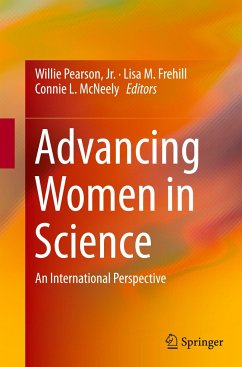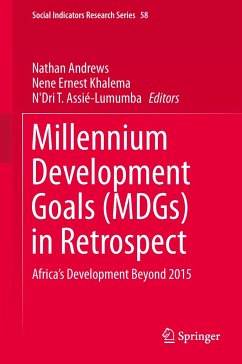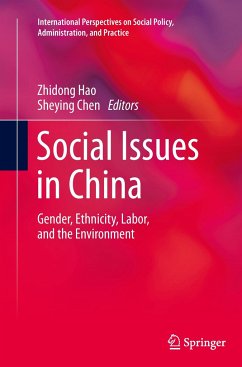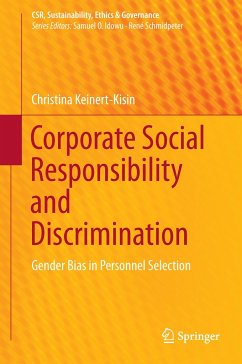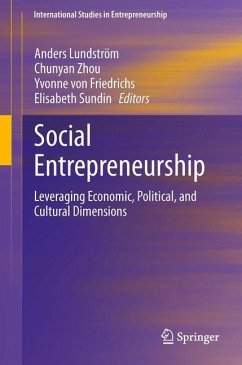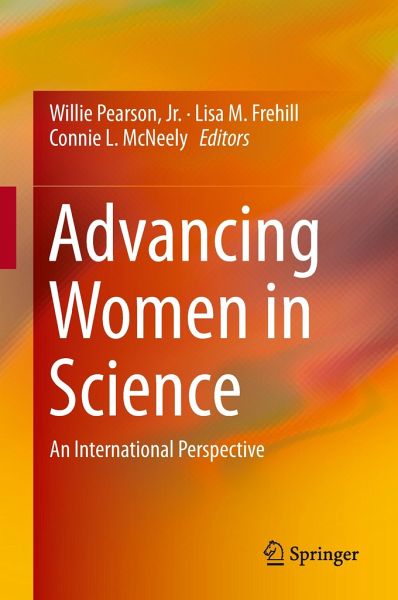
Advancing Women in Science
An International Perspective
Herausgegeben: Pearson, Willie; Frehill, Lisa M.; McNeely, Connie L.

PAYBACK Punkte
38 °P sammeln!
Many countries have implemented policies to increase the number and quality of scientific researchers as a means to foster innovation and spur economic development and progress. To that end, grounded in a view of women as a rich, yet underutilized knowledge and labor resource, a great deal of recent attention has focused on encouraging women to pursue education and careers in science - even in countries with longstanding dominant patriarchal regimes. Yet, overall, science remains an area in which girls and women are persistently disadvantaged. This book addresses that situation. It bridges the...
Many countries have implemented policies to increase the number and quality of scientific researchers as a means to foster innovation and spur economic development and progress. To that end, grounded in a view of women as a rich, yet underutilized knowledge and labor resource, a great deal of recent attention has focused on encouraging women to pursue education and careers in science - even in countries with longstanding dominant patriarchal regimes. Yet, overall, science remains an area in which girls and women are persistently disadvantaged. This book addresses that situation. It bridges the gap between individual- and societal-level perspectives on women in science in a search for systematic solutions to the challenge of building an inclusive and productive scientific workforce capable of creating the innovation needed for economic growth and societal wellbeing.
This book examines both the role of gender as an organizing principle of social life and the relative position of women scientists within national and international labor markets. Weaving together and engaging research on globalization, the social organization of science, and gendered societal relations as key social forces, this book addresses critical issues affecting women's contributions and participation in science. Also, while considering women's representation in science as a whole, examinations of women in the chemical sciences, computing, mathematics and statistics are offered as examples to provide insights into how differing disciplinary cultures, functional tasks and socio-historical conditions can affect the advancement of women in science relative to important variations in educational and occupational realities.
Edited by three social scientists recognized for their expertise in science and technology policy, education, workforce participation, and stratification, this book includes contributions from an intellectually diverse group of international scholars andanalysts and features compelling cases and initiatives from around the world, with implications for research, industry practice, education and policy development.
This book examines both the role of gender as an organizing principle of social life and the relative position of women scientists within national and international labor markets. Weaving together and engaging research on globalization, the social organization of science, and gendered societal relations as key social forces, this book addresses critical issues affecting women's contributions and participation in science. Also, while considering women's representation in science as a whole, examinations of women in the chemical sciences, computing, mathematics and statistics are offered as examples to provide insights into how differing disciplinary cultures, functional tasks and socio-historical conditions can affect the advancement of women in science relative to important variations in educational and occupational realities.
Edited by three social scientists recognized for their expertise in science and technology policy, education, workforce participation, and stratification, this book includes contributions from an intellectually diverse group of international scholars andanalysts and features compelling cases and initiatives from around the world, with implications for research, industry practice, education and policy development.





